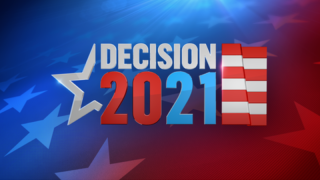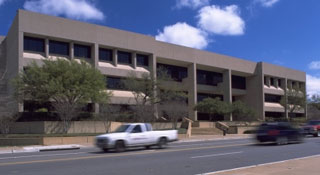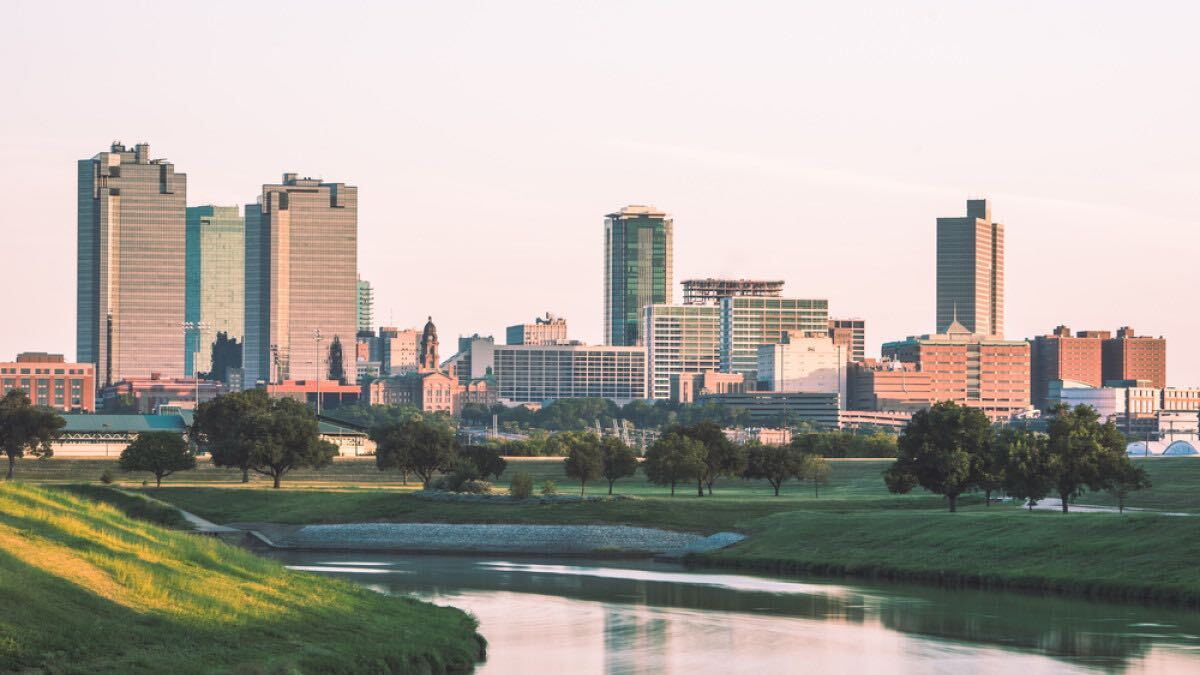
Below is the voter's guide to the May 1 uniform election. In it you will find key dates, how to register to vote or check your status, how to find out where and when you are able to vote and what you'll need to bring with you. There is also information on what to expect to find on your ballot (scroll down) as well as information on other topics such as poll watchers and straight-ticket voting.
Key Dates
April 1 - Last Day to Register to Vote
April 19 - First Day of Early VotingApril 20 - Last Day to Apply for Absentee BallotApril 27 - Last Day of Early Voting
May 1 - Election Day
What's On My Ballot? Sample Ballots
Get top local stories in DFW delivered to you every morning. >Sign up for NBC DFW's News Headlines newsletter.
Links to key races from the special election as well as local races in Collin, Dallas, Denton and Tarrant counties are listed below. It is not a comprehensive list of all races and not all races will appear on all ballots. To see sample ballots for your specific county, you'll need to visit your county election webpage (links are below).
County Election Pages: Anderson, Bosque, Comanche, Collin, Cooke, Dallas, Delta, Denton, Ellis, Erath, Fannin, Freestone, Hamilton, Henderson, Hill, Hood, Hopkins, Hunt, Jack, Johnson, Kaufman, Lamar, Navarro, Palo Pinto, Parker, Rains, Red River, Rockwall, Somervell, Tarrant, Van Zandt, Wise
Special Election
U.S. Rep. District 6
Voters is District 6 (Tarrant, Ellis and Navarro counties) will be holding a special election to fill the seat left vacant by the death of U.S. Rep. Ron Wright earlier this year. Nearly two dozen people are fighting for the traditionally red district including 11 Republicans, 10 Democrats, one Libertarian and one Independent. To read more on this race, click here.
To win the special election outright, a candidate will need more than 50% of the vote. If no candidate secures more than 50% of the vote, the top two candidates will advance to a runoff. The date for the runoff will be scheduled by Gov. Greg Abbott only after all of the ballots, including all mail-in ballots, have been counted and certified. Whoever wins the election will have to run for office again in November 2022 with the mid-term primary being held March 1, 2022.
Key Local Races
More than three dozen cities and towns will vote May 1 on who'll be the next to lead their city, including Fort Worth, Arlington and Plano. To see a listing of all candidates running mayor's races in Collin, Dallas, Denton and Tarrant counties, click here.
Arlington, Fort Worth Mayors Races
School Bonds, Municipal Propositions
Many local school districts, water authorities, and cities and towns have propositions on the May 1 ballot. Propositions from the counties of Collin, Dallas, Denton and Tarrant are grouped together on this page.
How to Register/Am I Registered?
The last day to register to vote in the state of Texas was Thursday, April 1. You can check your voter status at VoteTexas.gov. If you have not yet registered you will not be able to vote in this election, but you can still register to vote in future elections by printing out an application online and then mailing it to your county election office. Also, Texans can now register to vote online, but only when they renew or update their driver's license.
Where Do I Vote?
Voters in more than a dozen North Texas counties are approved to use the Countywide Polling Place Program for the May 1 uniform election, which means they can vote at any polling location they like. Those counties that are CPPP approved are: Collin, Dallas, Ellis, Erath, Grayson, Henderson, Hood, Hopkins, Jack, Kaufman, Navarro, Palo Pinto, Parker and Tarrant. See a full state list of approved CPPP counties here. Voters in all other counties must vote at their designated precinct on Election Day. Lists of voting/precinct locations can be found on County Election Pages here: Anderson, Bosque, Comanche, Collin, Cooke, Dallas, Delta, Denton, Ellis, Erath, Fannin, Freestone, Hamilton, Henderson, Hill, Hood, Hopkins, Hunt, Jack, Johnson, Kaufman, Lamar, Navarro, Palo Pinto, Parker, Rains, Red River, Rockwall, Somervell, Tarrant, Van Zandt, Wise. In larger counties, wait times may be posted on the county election website.
What Identification Do I Need to Vote?
You must present one of the following forms of photo ID when voting in person:
- Texas driver's license issued by the Texas Department of Public Safety (DPS)
- Texas Election Identification Certificate (EIC) issued by DPS
- Texas personal identification card issued by DPS
- Texas Handgun License issued by DPS
- A United States Military Identification card containing the person’s photograph
- A United States Citizenship Certificate containing the person’s photograph
- A United States Passport (book or card)
Absentee Ballots
Texas Gov. Greg Abbott (R) dramatically reduced the number of locations across the state that can accept a handed-in absentee ballot to ensure that poll watchers had adequate access to each location. So, beginning on Oct. 2, mail ballots delivered in-person by eligible voters can only be delivered to one location in each Texas county -- that location is designated by each county's early voting clerk.
To qualify for a mail-in ballot in Texas, voters must be: away from their county of residence on Election Day and during the early voting period; sick or disabled; confined in jail but otherwise eligible to vote, or 65 years old or more.
The last day to apply for an Absentee Ballot is April 20; Absentee ballots may be turned-in in person at any time as long as it's received by 7 p.m. on Election Day. Absentee ballots that are mailed in must be postmarked by Election Day.
- In Tarrant County, absentee ballots can be dropped off in person at the Tarrant County Elections Administration office at 2700 Premier Street, during regular business hours. The ballot may also be hand-delivered on Election Day between 7 a.m. and 7 p.m. You may only hand-deliver your own envelope and not for another individual and you must bring ID. Read more here.
- In Dallas County, absentee ballots can be dropped off at the Early Voting Clerk's Office at 1520 Round Table Drive. A full schedule, with extended hours, is available on DallasCountyVotes.org. You may only hand-deliver your own envelope and not for another individual and you must bring ID.
- In Denton County, absentee ballots can be dropped off at the Early Voting Clerk's Office at 701 Kimberly Drive. Ballots may be hand-delivered during regular business hours. You may only hand-deliver your own envelope and not for another individual and you must bring ID. Read more here.
- In Collin County, absentee ballots can be dropped off at the Elections Department at 2010 Redbud Boulevard during regular business hours. More information can be found here. You may only hand-deliver your own envelope and not for another individual and you must bring ID.
Has My Ballot Been Received?
If you would like to verify if your mail-in or in-person ballot has been received you can verify that information at txballot.org. Ballots that were mailed in may take a few days to show up on the website.
Straight-Ticket Voting
Most states don't offer straight-ticket voting. Texas has for decades, but Republican Gov. Greg Abbott signed a law removing the option in 2020. That measure was pushed through by a GOP-controlled Legislature that argued the change would encourage voters to cast better-informed ballots on Election Day.
Democrats challenged the change in court in March 2020, citing long Super Tuesday lines in Houston where some voters waited more than an hour to vote. They said the law disproportionately hurts Black and Latino voters in big urban counties, where longer ballots mean wait times.
Last year a federal appeals court blocked a ruling that Texas must offer straight-ticket voting for November's general election after the Texas Secretary of State's office argued that making a change now would create a "logistical nightmare."
So, no straight-ticket voting will be available in this election.
What is a Poll Watcher?
A poll watcher is a person appointed to observe the conduct of an election on behalf of a candidate, political party or the proponents or opponents of a particular measure. Their role in an election is established by Chapter 33 of the Texas Election Code and they must adhere to certain rules at polling locations.
The primary duty of a watcher is to observe the conduct of the election at the location where the watcher has been appointed. A watcher may point out to an election judge or clerk any observed irregularity or violation of the Texas Election Code. However, if the clerk refers the watcher to the judge, the watcher may not discuss the matter further with the clerk unless the presiding judge invites the discussion.
- A poll watcher must have a certificate of appointment that includes their name, address, information on who appointed them and the precinct in which they are permitted to serve.
- Poll watchers cannot be current candidates or elected officials.
- Poll watchers are not allowed to engage or talk to voters in any manner about the election.
- No more than two poll watchers may be at any particular polling place at any given time.
- Poll watchers cannot talk with an election officer regarding the election except to call attention to an irregularity or violation.
- The watcher cannot reveal information about voters or the votes before the polls close or face possible criminal charges.
- A poll watcher can witness the installation of voting equipment and observe the securing of equipment before the election.
- A poll watcher can observe any activity conducted at the location and sit or stand conveniently near the election officials to observe the election activities, but they are not allowed to go into voting booths with voters while they are marking their ballot.
- Poll watchers are permitted to observe assistance given to voters by election officials and to inspect the ballot before it's deposited in the ballot box to determine if it was prepared in accordance with the voter's wishes.
- Poll watchers are permitted to inspect the returns and other records prepared by election officials. They are also allowed to observe the tallying and counting of votes to verify that they are tallied and read correctly.
- Poll watchers may also be on the lookout for illegal activities, including but not limited to, electioneering, loitering, voters attempting to vote without identification, others attempting to coerce or bribe voters.



